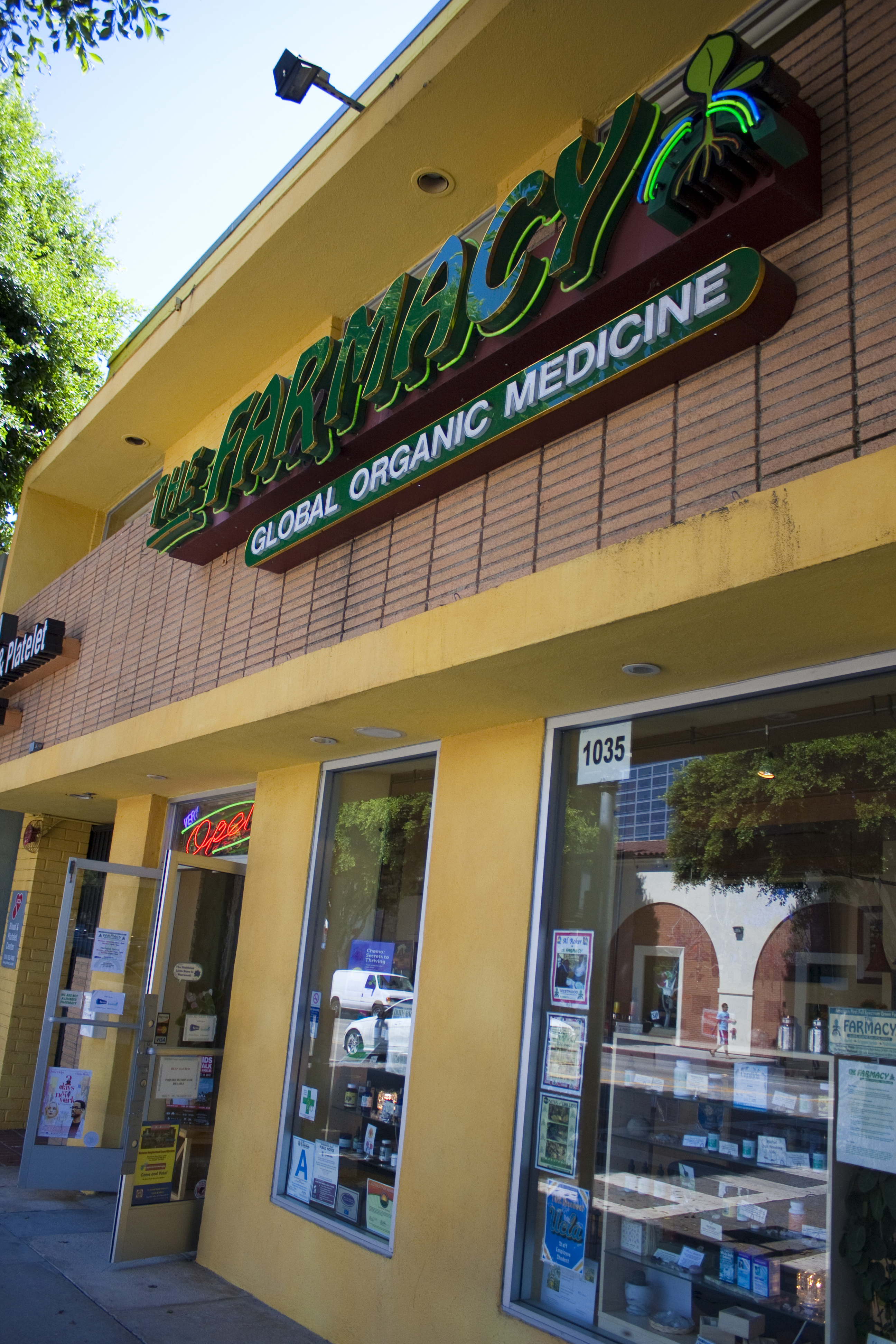Ryan Nelson: Proposition D’s marijuana dispensary cap too narrow, anti-business

The Farmacy in Westwood is one of the 135 marijuana dispensaries that would be exempt from a citywide ban if Proposition D passes.
By Ryan Nelson
May 17, 2013 12:20 a.m.
 On May 21, three propositions will appear on the L.A. ballot concerning the legality of medicinal marijuana dispensaries in the city. The two leading competitors, Proposition D and Measure F, offer distinctly different visions for the future of medicinal marijuana in Los Angeles.
On May 21, three propositions will appear on the L.A. ballot concerning the legality of medicinal marijuana dispensaries in the city. The two leading competitors, Proposition D and Measure F, offer distinctly different visions for the future of medicinal marijuana in Los Angeles.
While both work to broaden regulations on dispensaries, only Measure F provides the economic freedom necessary to provide patients with the best care.
Should Proposition D pass, all dispensaries within the city limits would be banned, but special immunity would be granted to those 135 dispensaries that have operated since September 2007, registered with the city, paid taxes and have passed employee background checks.
Measure F requires the dispensaries to do many of the same things Proposition D does but would not cap the number allowed to operate in the city, nor require proof of 2007 registration.
While both attempt to regulate marijuana distribution within the city, Proposition D is a governmental overreach that threatens to eliminate healthy businesses by adding these two unnecessary restrictions.
Particularly, the 2007 benchmark seems wholly arbitrary. While the city attempted to enact sweeping regulations in 2007 with the Interim Control Ordinance, the opening date of a business is a highly imprecise measure of the venue’s quality of service and observance of legal standards in the industry.
Some dispensaries, like The Farmacy in Westwood Village, support Proposition D, since it rewards businesses who have a positive and long-standing record with the city’s laws.
Therefore, while regulation is necessary, the city council should not arbitrarily limit business opportunities within Los Angeles.
Measure F allows for natural growth based on economic principles. Dispensaries still have to register with the city, pay taxes and pass background checks, but the removal of a cap ensures that medical marijuana bends to the law of supply and demand, not just the laws of Los Angeles.
To leave a product in the hands of such a few stores is simply poor economic sense. Competition is often cited as a key reason for lower prices; without the threat of other stores, dispensaries won’t have an incentive to give their customers the best value both in terms of products and prices.
Considering that most shops serve as a type of alternative pharmacy for their customers, the only people that lose in this situation are the patients that need it most.
Those opposed to medicinal marijuana believe that many of the estimated 1600 shops operating within the city serve illegal substances that elicit dangerous activities around their shops. But if properly enforced, the proposed regulations could root out much of the illegitimate dispensing.
In addition, a June 2012 study from UCLA found that medical marijuana dispensaries have no effect on crime rates in neighborhoods.
There is, however, one angle to the issue that complicates matters. Marijuana continues to exist as a Schedule 1-controlled, or illegal, substance under federal law. Some, including those in the United Food and Commercial Workers Union, a backer of Proposition D, speculate the strict regulations are the result of fear that the federal government could pursue litigation against the city.
However, following the complete legalization of marijuana in Washington and Colorado, President Obama stated he would not prioritize the prosecution of recreational users. In the same vein, his administration has conducted a policy of leaving small-scale recreational and medical distributors alone in states where it’s legal while cracking down on larger operations.
Given the proliferation of dispensaries within the city, it can be assumed, however, that there is a significant market for medicinal marijuana. By decreasing access to marijuana, the firms still operating if Proposition D passes are going to have to grow bigger to meet demand.
If Los Angeles is serious about keeping the federal government off its back, it makes sense to allow dispensaries to operate organically – and in compliance with city law – within the market.
This isn’t meant to advocate on behalf of all 1600 dispensaries. As a rough benchmark, 879 dispensaries registered with the city last year to pay the special medicinal marijuana tax, and of those 879, 404 actually paid, said Matt O’Malley, an organizer for the United Food and Commercial Workers Union. It’s these 404, who prove their commitment to following the law, that deserve to operate regardless of whether or not they registered in 2007.
There exists a need to regulate the legal gray area of medical marijuana, and for the most part, the city’s proposition does the part. However, the two arbitrary criteria in Proposition D could threaten to undermine the accessibility of medicinal marijuana and hurt the patients its meant to serve.
Email Nelson at [email protected]. Send general comments to [email protected] or tweet us @DBOpinion.


